The Sustainability Forum 2022, hosted by Tsinghua University School of Economics and Management (Tsinghua SEM), London Business School (LBS), and the Asian Infrastructure Investment Bank (AIIB), was organized online by the Institute for Global Development at Tsinghua University (Tsinghua IGD) on September 15, 2022.
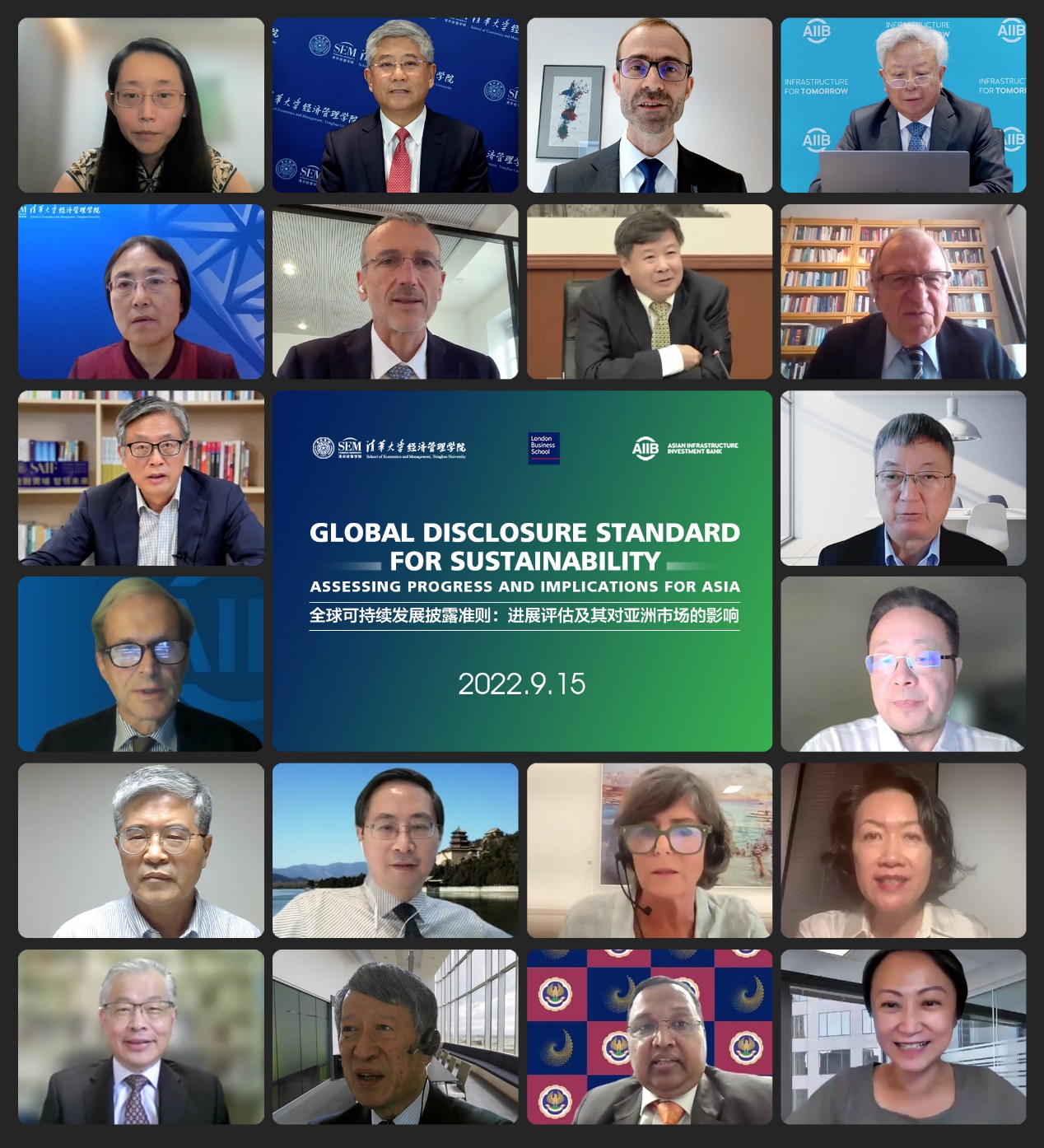
Discussions centered on the topic of "Global Disclosure Standard for Sustainability: Assessing Progress and Implications for Asia." Policymakers, academic experts, and market actors in Asia met to discuss sustainability-related issues and to comment on the draft of the International Sustainability Disclosure Standards (ISDS) published by the International Sustainability Standards Board (ISSB), and its impact on the Asian market.
As many as 500 online participants from more than 20 countries and regions participated in the six-hour conference. Participants represented the views of Asian politicians, academics, and market participants through their insights and ideas, and furthered the development of clear and accepted sustainable disclosure standards.
BAI Chong-En, Mansfield Freeman Chair Professor, dean of Tsinghua SEM and executive deputy dean of Tsinghua IGD; François Ortalo-Magné, professor and dean of LBS; and JIN Liqun, president and chair of the Board of Directors of AIIB, delivered opening remarks. Professor XIAO Xing, head of the Accounting Department, Tsinghua SEM, moderated the session.
In his speech, BAI Chong-En said sustainable development is a global issue that requires urgent action from all parties. Universities can participate in research, exchanges, education and outreach. Tsinghua SEM is actively researching key issues related to global development, offering ESG and sustainability courses, encouraging students and entrepreneurs to think about the environment, and promoting collaboration between business, academia, and researchers to spur technological innovation. According to BAI, in order to achieve the carbon neutrality goals and sustainable development, all societal sectors must cooperate, share ideas internationally, pool their knowledge, coordinate their efforts and reach a consensus. The forum would be an excellent place to start.
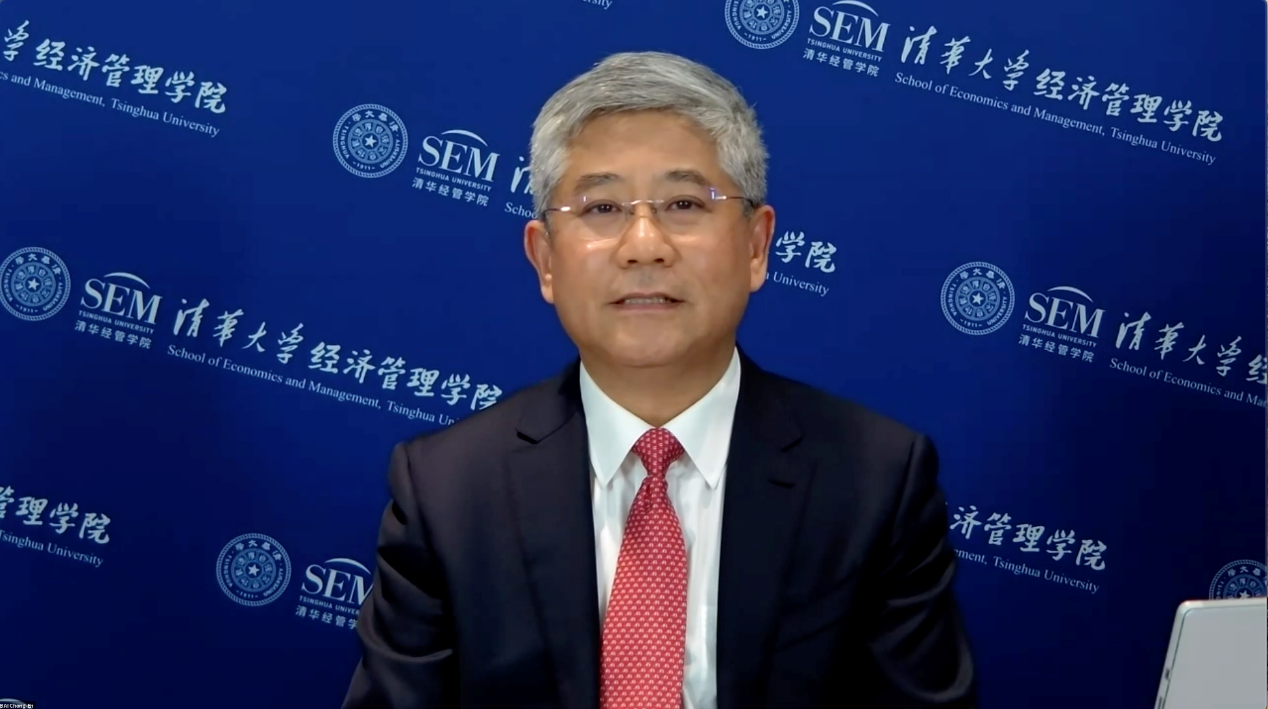
BAI Chong-En
François Ortalo-Magné spoke about ESG disclosure from a research standpoint. He said that ESG disclosure has significant ramifications for businesses, the investment community, regulators and consumers, and he cited research from the LBS to demonstrate how crucial ESG disclosure is to reducing corporate green-washing and facilitating the market's information flow.
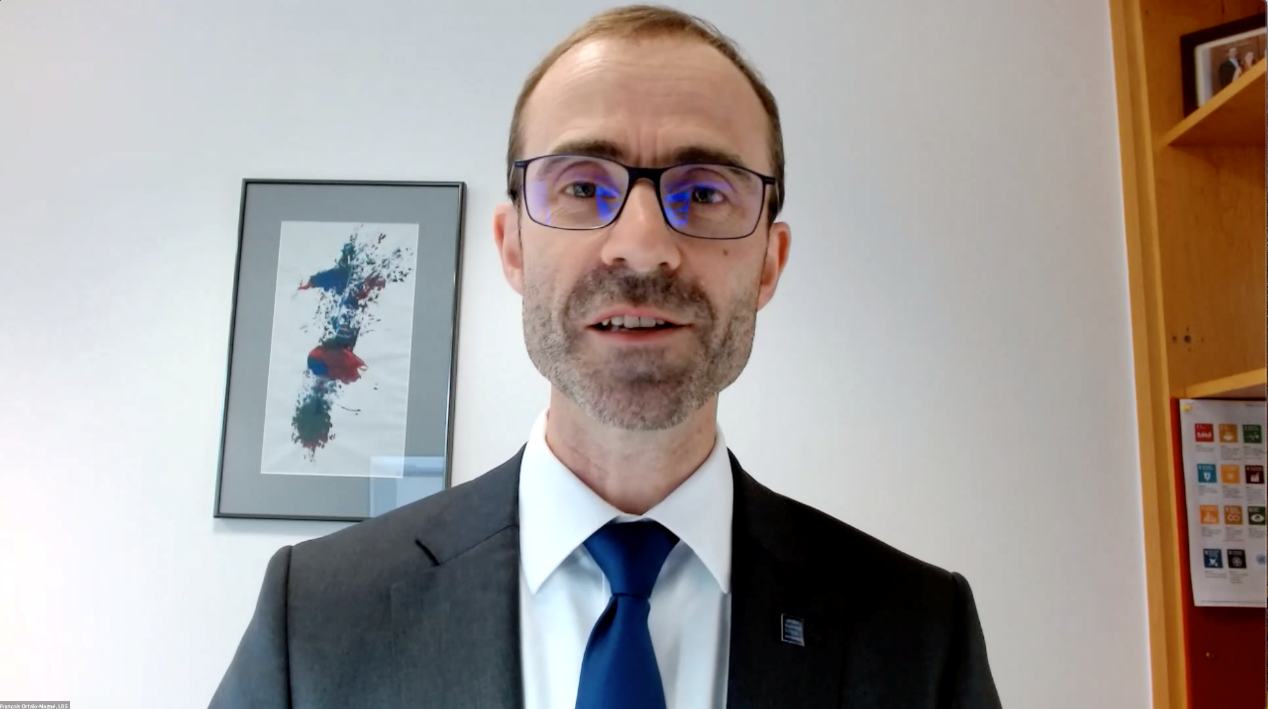
François Ortalo-Magné
JIN Liqun called for global agreement and decisive action to deal with the triple planetary crises of climate change, biodiversity loss, and pollution. The AIIB is built upon three enduring values: "Lean, Clean and Green." It is dedicated to supporting economically and socially viable infrastructure projects in Asia, with a target of ensuring that 50 percent of approved financing by 2025 will be directed towards climate finance, JIN said. The AIIB has been committed to transparency, integrity and accountability since day one, he said.
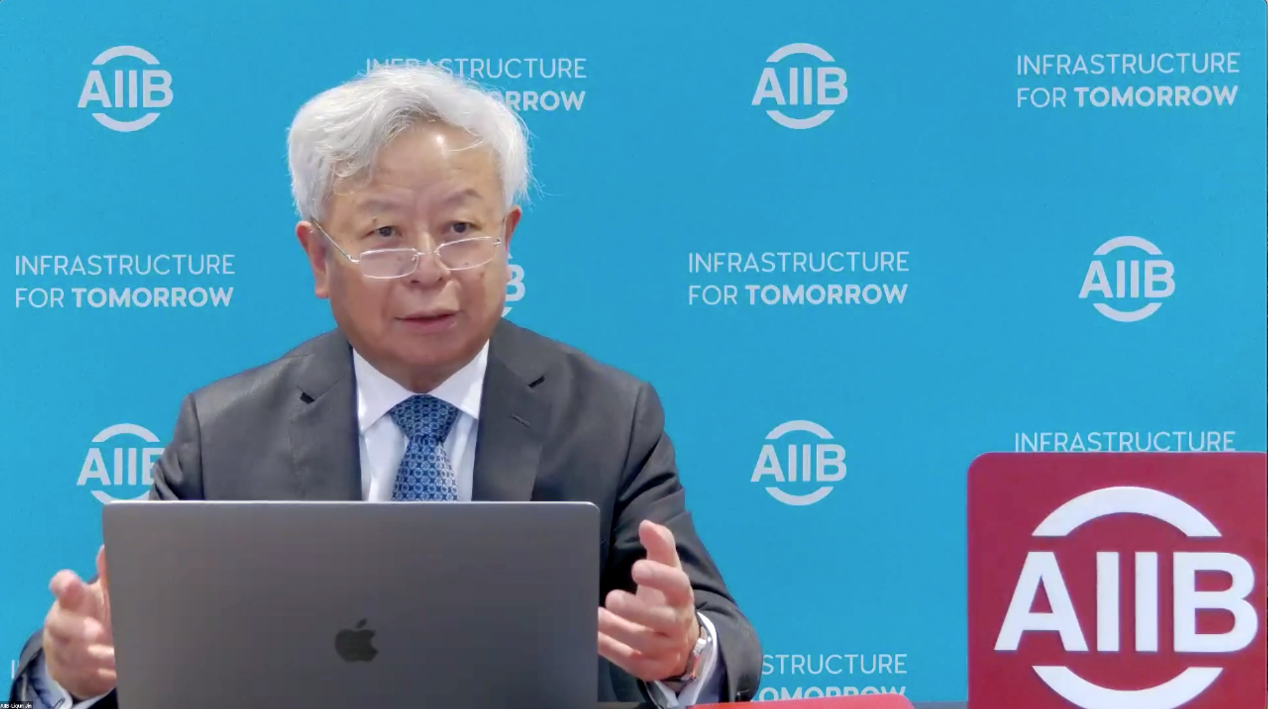
JIN Liqun
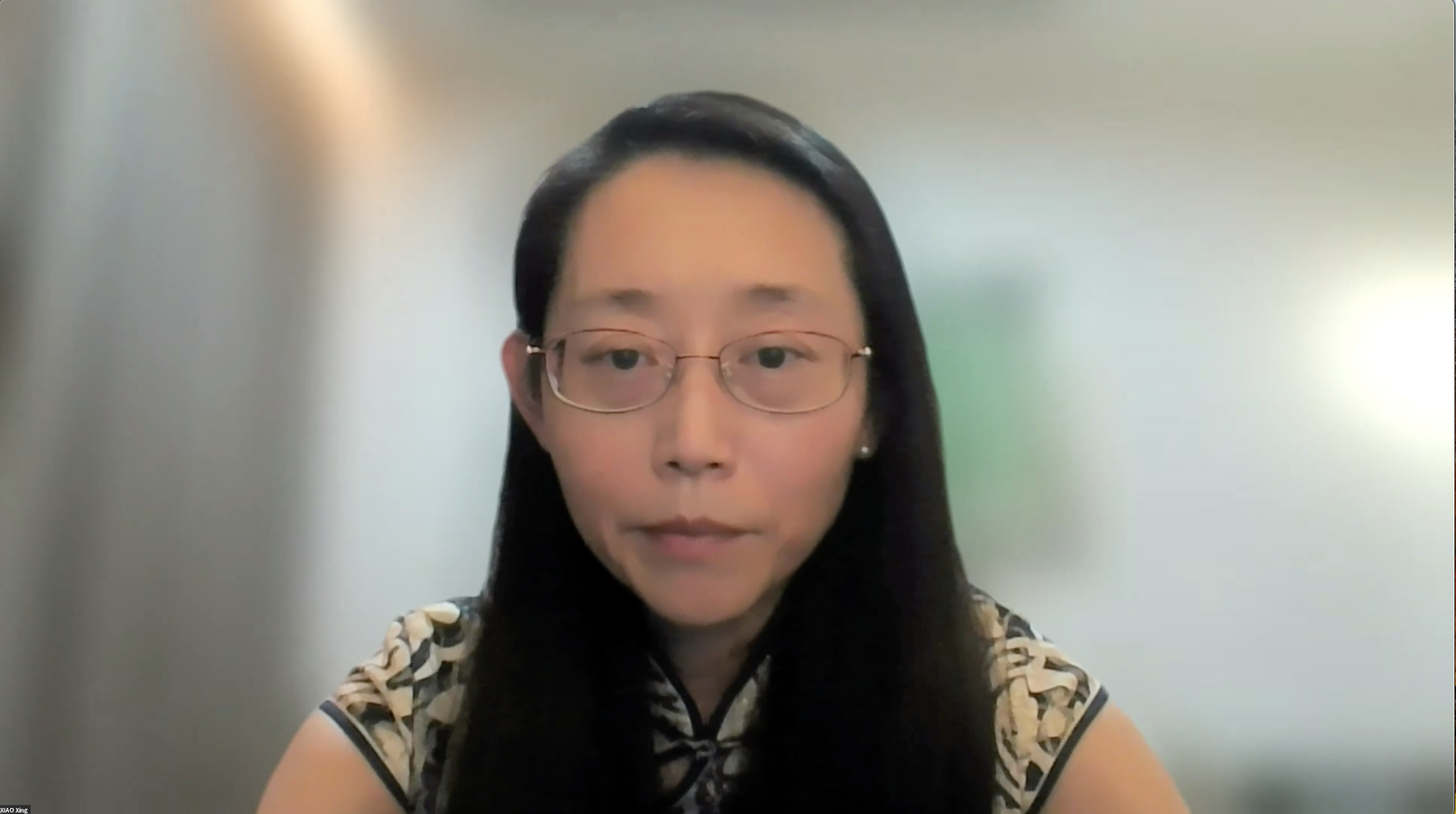
XIAO Xing
Emmanuel Faber, chairman of the ISSB, delivered a keynote address to introduce the ISSB and its first proposed set of Sustainability Disclosure Standards. The ISSB was given a mission by the International Financial Reporting Standards Foundation (IFRS) to develop a global benchmark standard for sustainable disclosure to meet the information needs of investors, when assessing the value of a company.
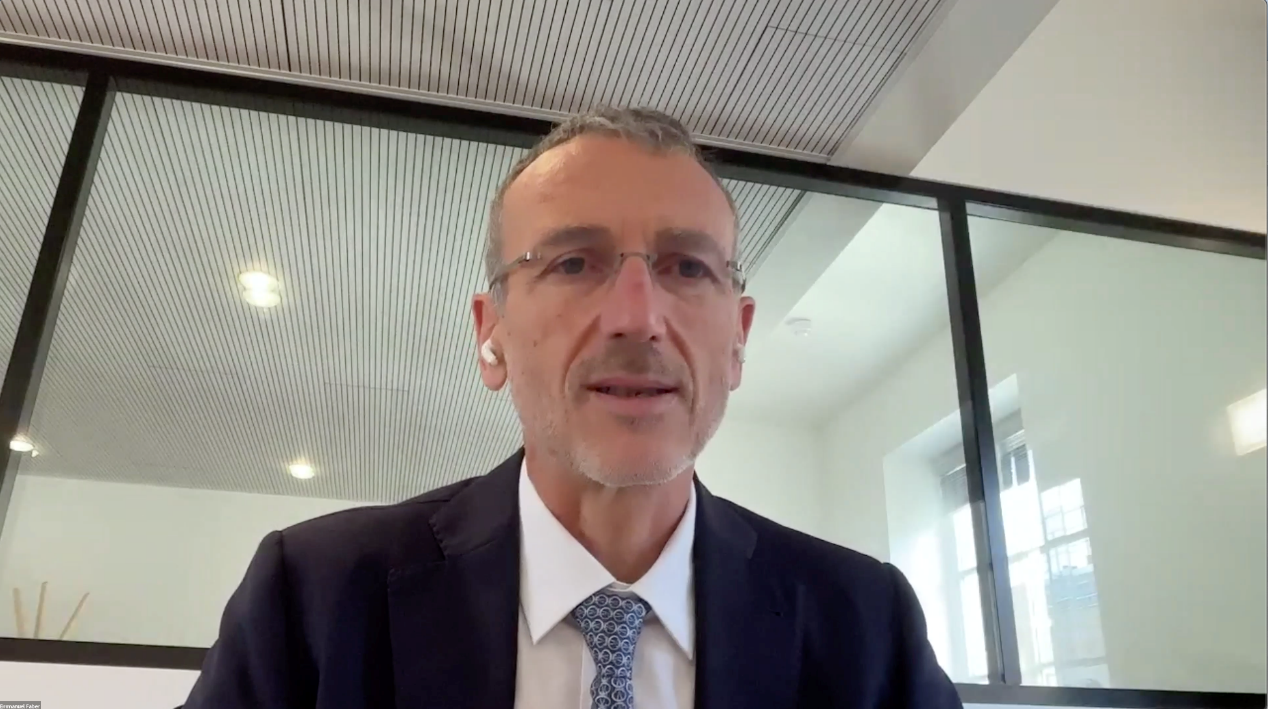
Emmanuel Faber
Emmanuel Faber began his presentation by reviewing the history of the ISSB's creation and its mission. Countries across the world have already provided feedback on the first drafts, which cover topics such as industry standards, implementation, and disclosure down the value chain. In the upcoming phase, the ISSB would compile and analyze inputs to improve convergence and interoperability with the standards of the EU and US, he said. Faber offered three suggestions to players in the Asian market: prepare early to seize opportunities and attract capital; learn more from one another, particularly by utilizing digital technology to go green; and concentrate on capacity building and engage in international benchmarking.
In "Thoughts from Policy Makers", attendees heard keynote speeches from ZHU Guangyao, former Vice Minister of Finance of the People's Republic of China and trustee of the IFRS Foundation; Erkki Liikanen, chair of IFRS Foundation Trustees; TU Guangshao, board chairman of the Shanghai Finance Institute, former vice chairman of the China Securities Regulatory Commission and former vice chairman and president of the China Investment Corporation; and ZHU Min, vice chairman of the China Center for International Economic Exchanges, former deputy managing director of the International Monetary Fund and former deputy governor of the People's Bank of China. BAI Chong-En moderated the session.
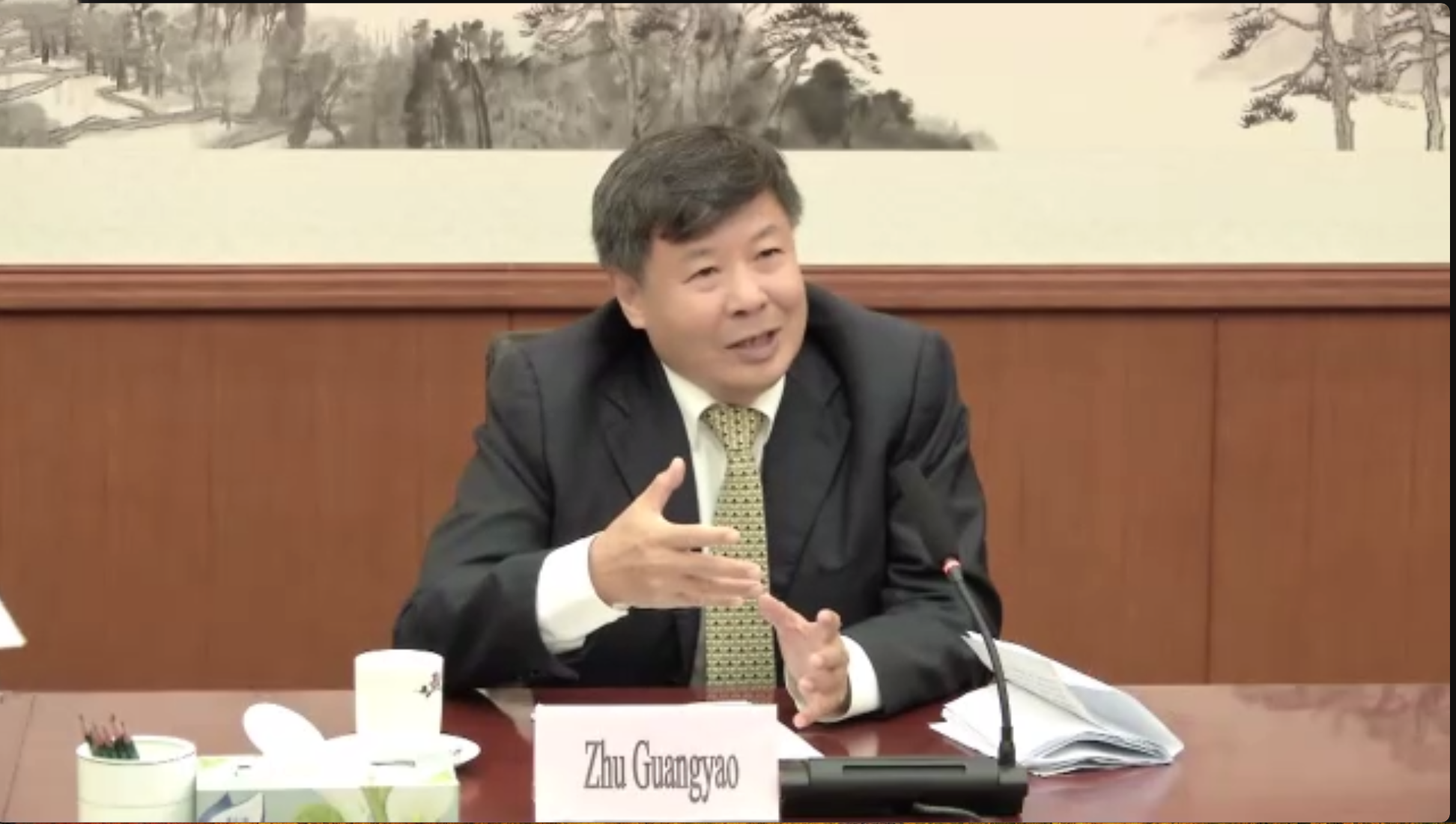
ZHU Guangyao
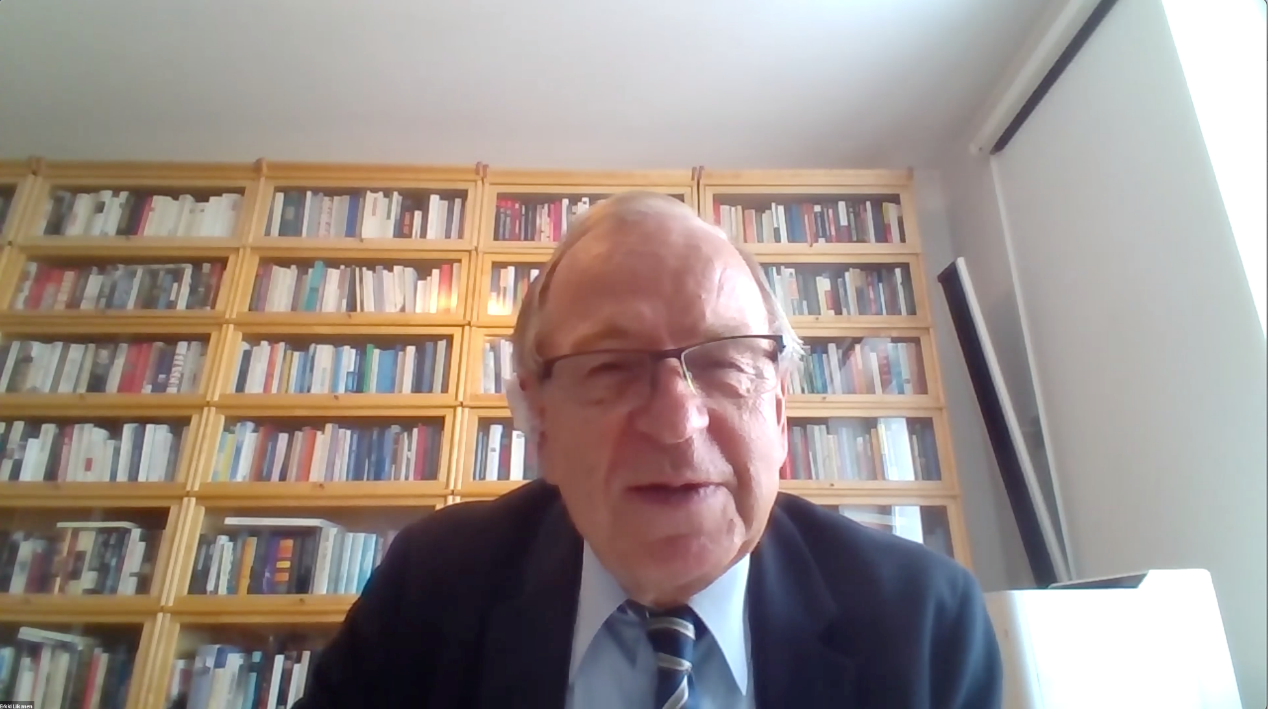
Erkki Liikanen
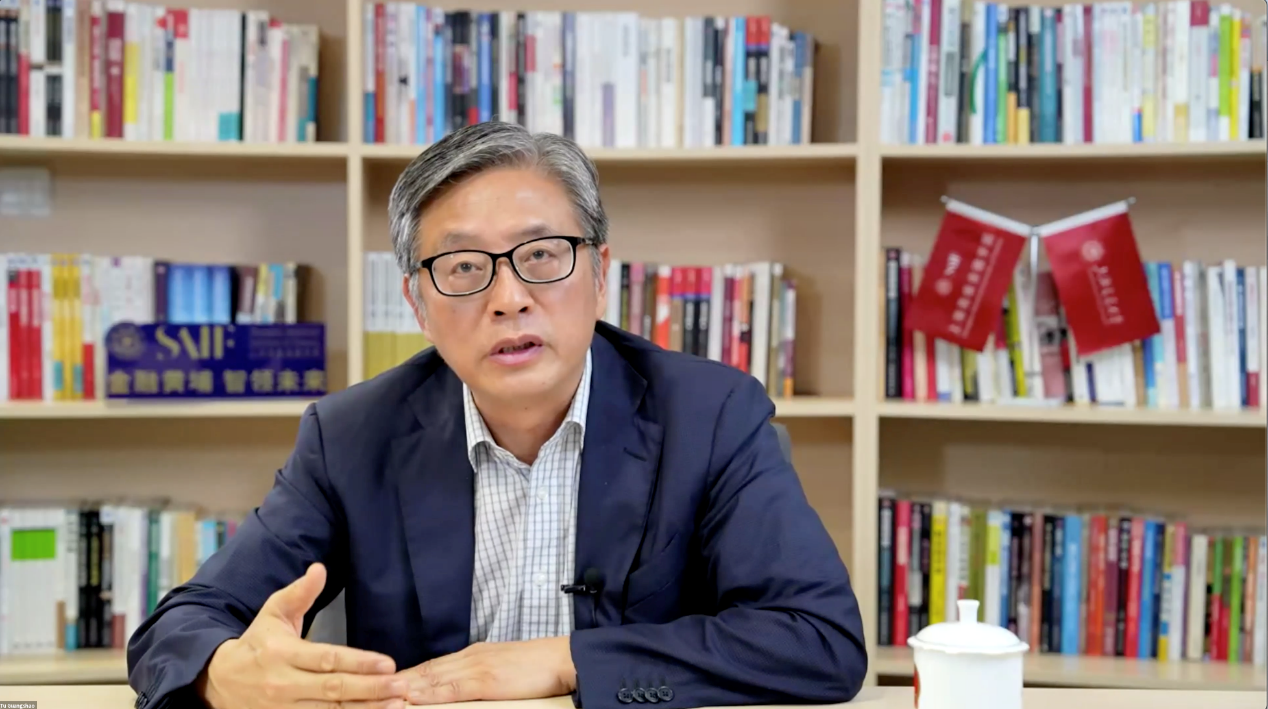
TU Guangshao
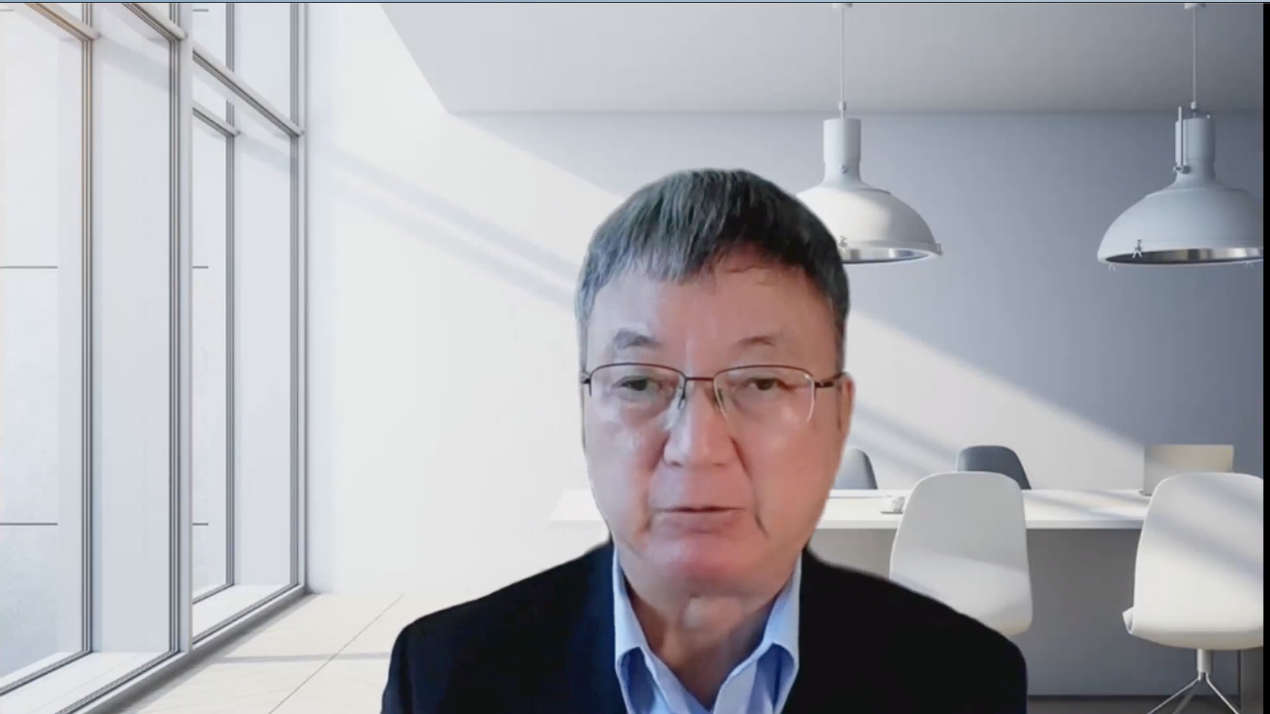
ZHU Min
The main forum was followed by two sub-forums.
Erik Berglof, chief economist of the AIIB, presided over the first sub-forum, which had the theme "Feedback from Academia" and featured four academics, who shared their opinions and engaged in deep discussion.
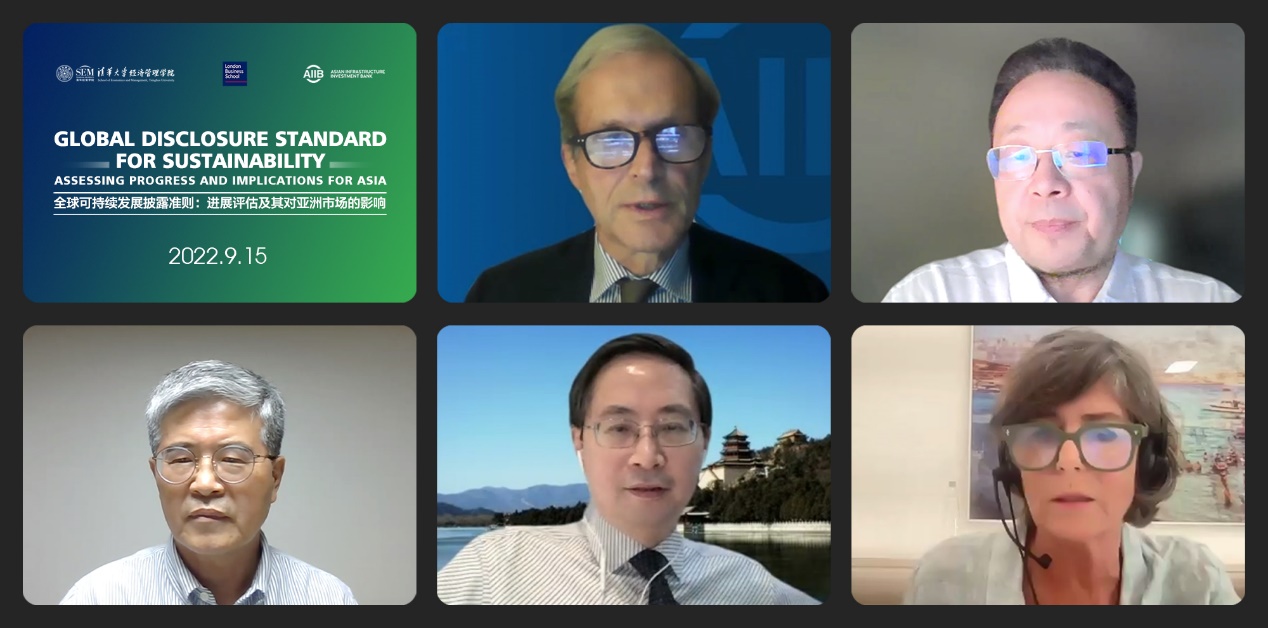
Clockwise from top center: Erik Berglof, HE Kebin, Lucrezia Reichlin, MA Jun, Jong Dae Kim
Four panelists participated in the second sub forum, which had the title "Views from Market Participants" and was moderated by Teresa Ko, corporate partner and China chairman of Freshfields Bruckhaus Deringer and co-vice chair of the IFRS Foundation.
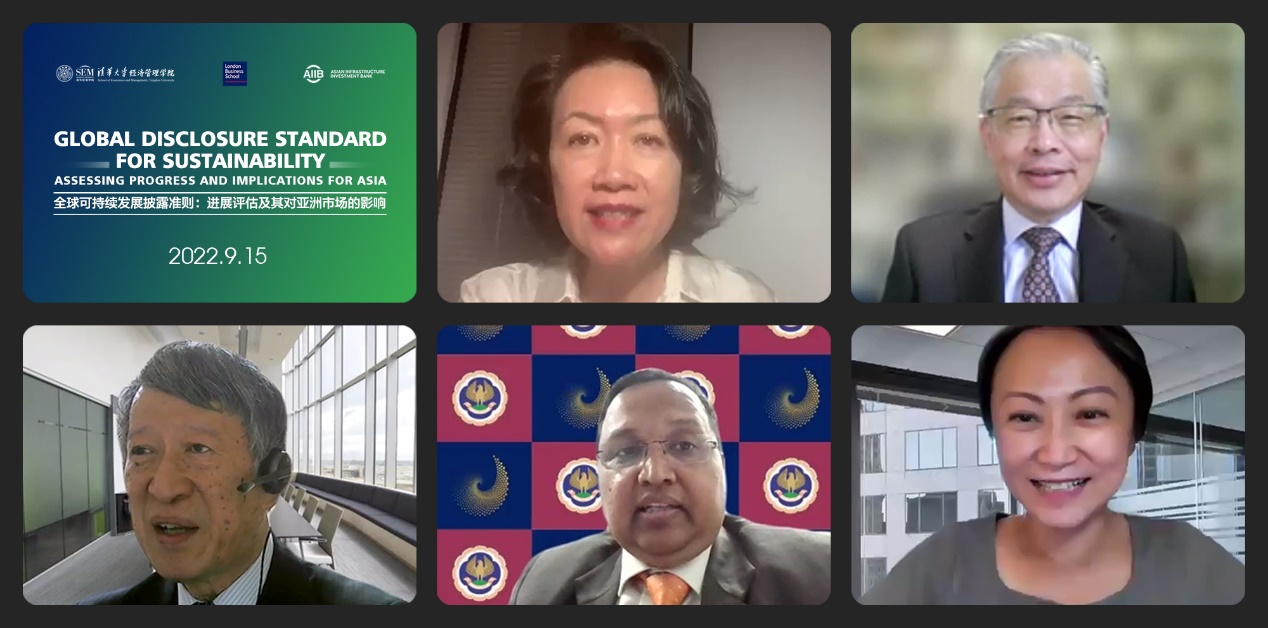
Clockwise from top center: Teresa Ko, ZHANG Weiguo, Yvonne Kam, Sanjeev Singhal, Hideki Kanda
Established in 2016, the Institute of Global Development at Tsinghua University (IGD) is a university-level research institution. The IGD is strategically positioned to develop a world-class high-end think-tank in the field of global development and global economic governance. Its research focuses on five strategic areas in global common development and global economic governance: economic development and anti-poverty action, international financial governance, international economic and trade relations, the digital economy and global climate change.
Editor: Li Han

